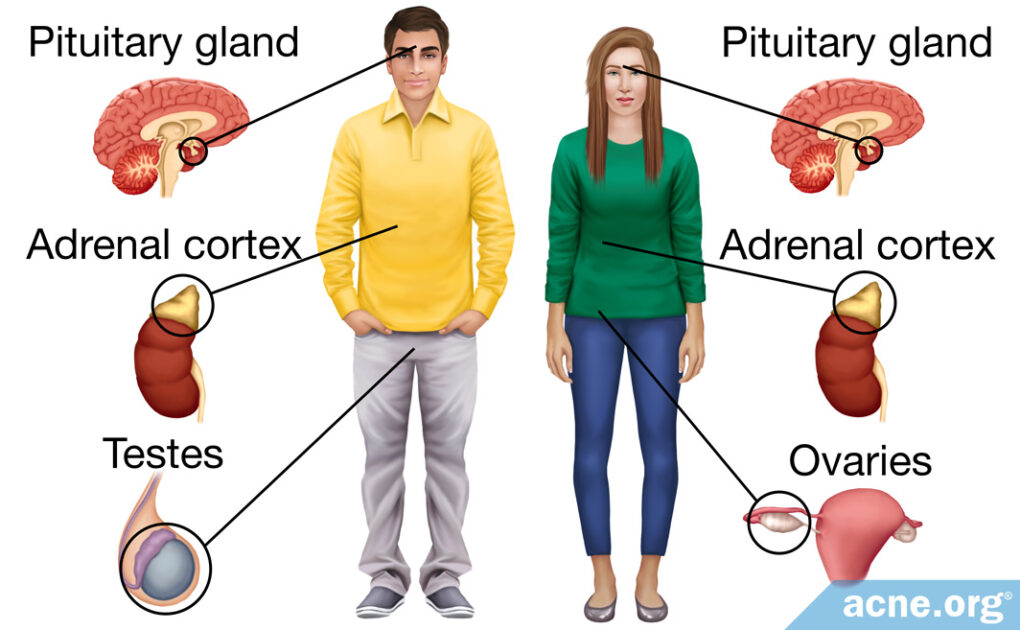The Role of Hormones in Acne

The Essential Info
Males and females: Hormones are necessary for acne to begin. This is why we see acne start only after the onset of puberty. Specifically, it is the increased androgens (male hormones found in both males and females) that the body starts producing that can cause acne in both sexes.
Females: Generally speaking, estrogen helps clear acne. This is why oral contraceptives, which are estrogen-based, tend to clear acne.

The Science
Acne by its very nature can be considered a hormonal disease. Hormones are responsible for the maturation of the oil glands in our skin and only once matured do these glands develop the capability of becoming acne lesions. This is why children do not experience acne.1 While it is not known exactly how hormones affect acne, we do know that the skin is a target for hormones and can even produce hormones itself.2
Testosterone
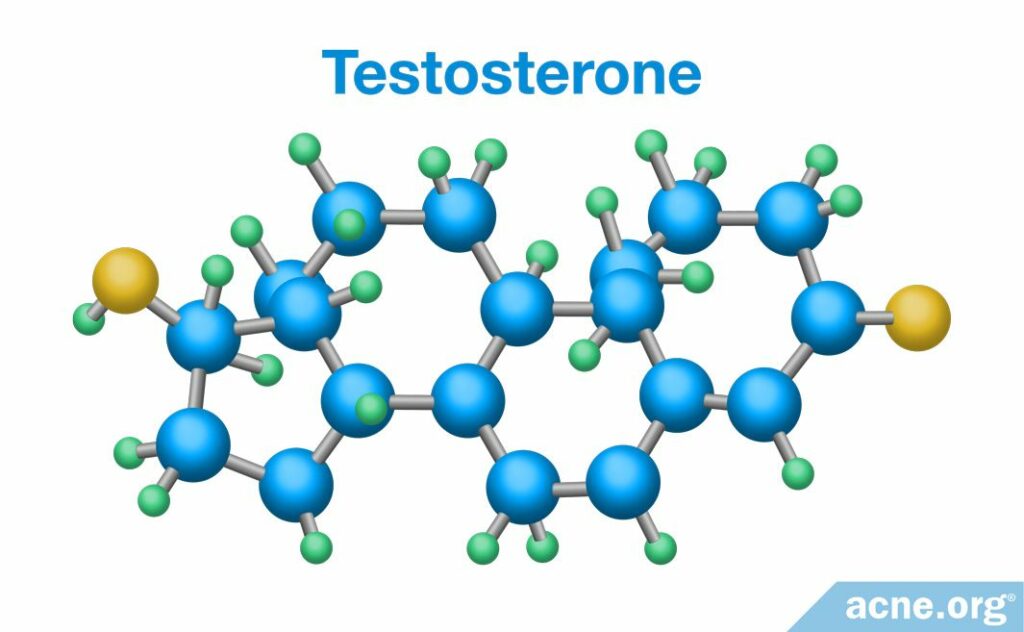
Doctors and researchers find that increased androgen (male hormones) levels in both males and females can result in acne.1,3-4 Either the oil surplus created by androgens or some yet unknown reason seems to be instrumental in clogging hair follicles where bacteria grows and causes acne pimples and blemishes to form.
Estrogen
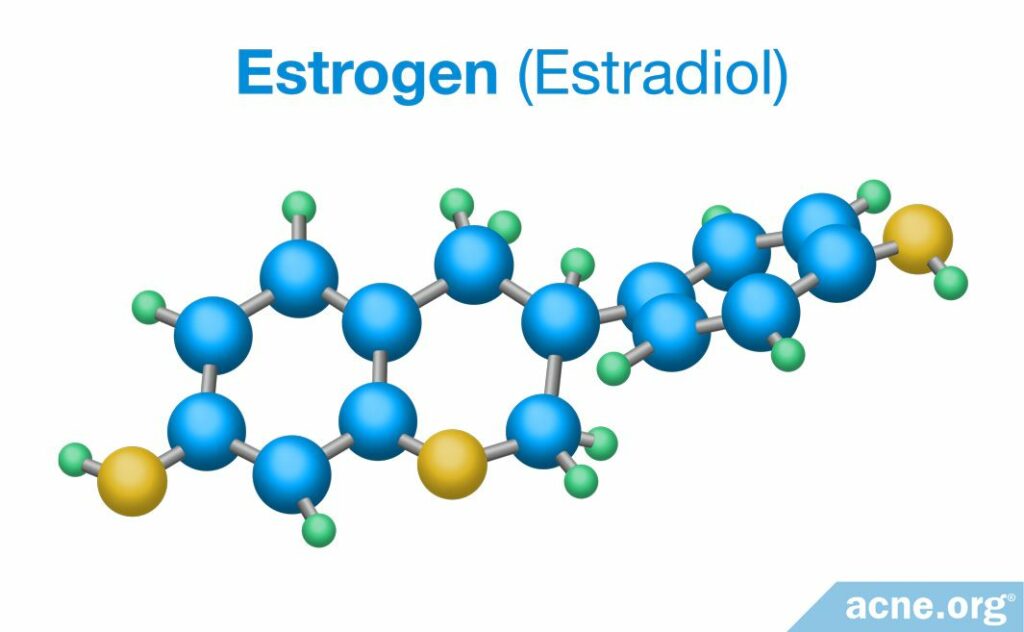
Acne in women ebbs and flows more cyclically due to monthly menstruation. We can also see the effects of estrogen levels on acne during pregnancy and to a lesser degree, menopause. Doctors sometimes prescribe low-dose birth control pills to women to help regulate hormone levels and reduce acne symptoms. Doctors sometimes also prescribe androgen receptor blockers but there is less evidence of their efficacy at this time.1,5
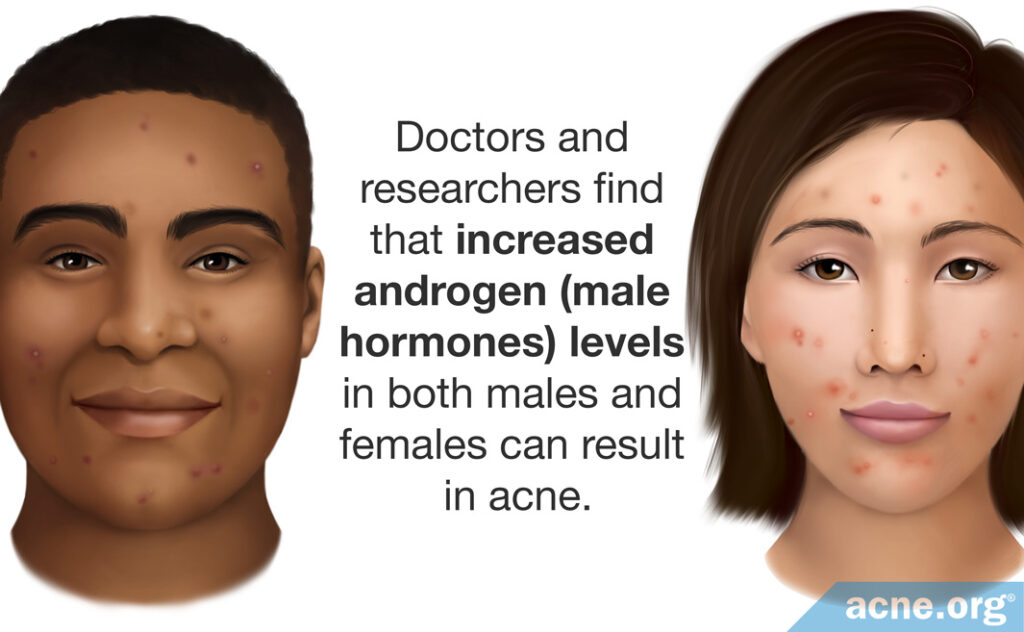
Women can experience an acne flare-up or even acne for the first time in their lives in their 20s or even their 30s. It’s prudent to find an endocrinologist (hormone specialist MD) to ensure hormones are within acceptable levels. If levels are within an acceptable range, proper topical treatment is most often sufficient.
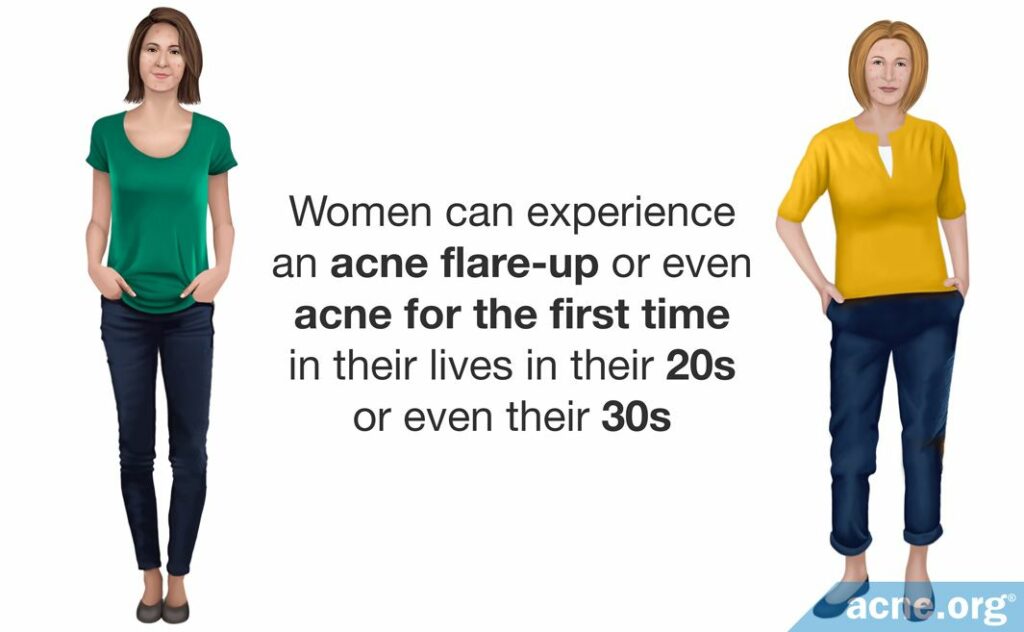
Hormones, particularly androgens, play a major role in acne formation. In women, acne may also be due to the fluctuation of hormones during the menstrual cycle, pregnancy or menopause. Despite the hormonal nature of acne in both males and females, topical treatment is effective for most people.
References
- Berger, T. G., James, W. D. & Odom, R. B. Andrew’s Diseases of the Skin Philadelphia: W.B. Saunders Company, 2000). https://www.elsevier.com/books/andrews-diseases-of-the-skin/james/978-1-4377-0314-6
- Chen, W. C. & Zouboulis, C. C. Hormones and the pilosebaceous unit. Dermatoendocrinol. 1, 81-86 (2009). https://www.ncbi.nlm.nih.gov/pmc/articles/PMC2835896/
- Farrell, A., Alaghband-Zadeh, J., Carter, G., Newson, R. B. & cream, J. J. Do Some Men with Acne Vulgaris Have Raised Levels of LH? Clin. Endocrinol. (Oxf.) 50, 393-397 (1999). https://www.ncbi.nlm.nih.gov/pubmed/10435067
- Thiboutot, D., Gilliland K, Light, J. & Lookingbill, D. Androgen Metabolism in Sebaceous Glands from Subjects With and Without Acne. Arch. Dermatol. 135, 1041-1045 (1999). https://www.ncbi.nlm.nih.gov/pubmed/10490108
- Arora, M. K., Seth, S. & Dayal, S. The relationship of lipid profile and menstrual cycle with acne vulgaris. Clin. Biochem. 43, 1415-1420 (2010). https://www.ncbi.nlm.nih.gov/pubmed/20880492
Further Reading
- Chen, W. C., Thiboutot, D & Zouboulis, C. C. Cutaneous androgen metabolism: Basic research and clinical perspectives. J. Invest. Dermatol. 119, 992-1007 (2002). https://www.ncbi.nlm.nih.gov/pubmed/12445184
 Acne.org Products
Acne.org Products